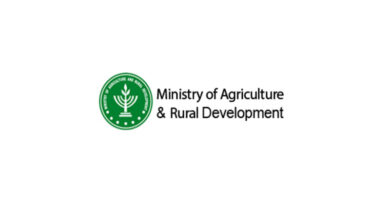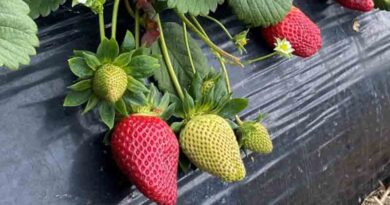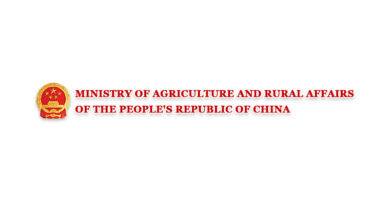The strawberry season has begun, and with it the illegal smuggling from Gaza
14 December 2020, Israel: Strawberries from the Gaza Strip were packaged in cartons with the label Ramat Hasharon Strawberries in order to falsely represent them as strawberries grown in Israel The Ministry of Agriculture reiterates: Consumption of fruits & vegetables grown without supervision may pose a significant risk to public health Winter is here, bringing with it the strawberry season and the increased demand for this sweet fruit during the cold months. Along with the demand, there are also attempts to smuggle strawberries out of Gaza and sell them illegally inside the State of Israel. Just last weekend, inspectors from the Central Investigation and Enforcement Unit of the Ministry of Agriculture and Rural Development uncovered, in the Jerusalem area, a case of smuggling and marketing of 35 packages containing 300 kg of strawberries originating from the Gaza Strip.
Also Read: MagGrow raises €6m on its technology for precision crop protection
The inspectors of Central Investigation unit warn that in this case, at the entrance to Alfei Menashe in Samaria, a stall was identified as selling strawberries from the Gaza Strip that were grown unsupervised. The strawberries were packed in cartons with ‘Ramat Hasharon Strawberries’ labels on them to mislead the public, and give a false representation that the strawberries were grown in Israel. The labels appearing on the cartons concealed a sticker indicating that they originated in Gaza. An investigation carried out by the Ministry’s inspectors found that there are no growers called ‘Ramat Hasharon Strawberries’.
According to the Agricultural Produce Marketing Law, there are several threshold conditions for the entry of agricultural products into the country. These include sampling the product to test it for microbiological residues and pesticide residues to ensure that the product was irrigated using suitable water, that it was treated with authorized materials, and more. Agricultural produce that has not undergone these processes poses a significant risk to public health and may also lead to the entrance of pests and diseases capable of destroying many agricultural sectors. The only vegetables from Gaza that are allowed to be marketed in Israel are tomatoes and eggplants
The Director General of the Ministry of Agriculture and Rural Development, Dr. Nahum Itzkovich, emphasizes that: “It is not permitted to import and market fruits and vegetables grown in Gaza, especially without supervision, without meeting the strict standards of the Ministry of Agriculture and without stringent inspections prior to their marketing. We recommend that the public only purchase strawberries sold at established points of sale that make sure to buy strawberries grown in Israel, and preferably strawberries in closed packages that were treated using biological methods.”















